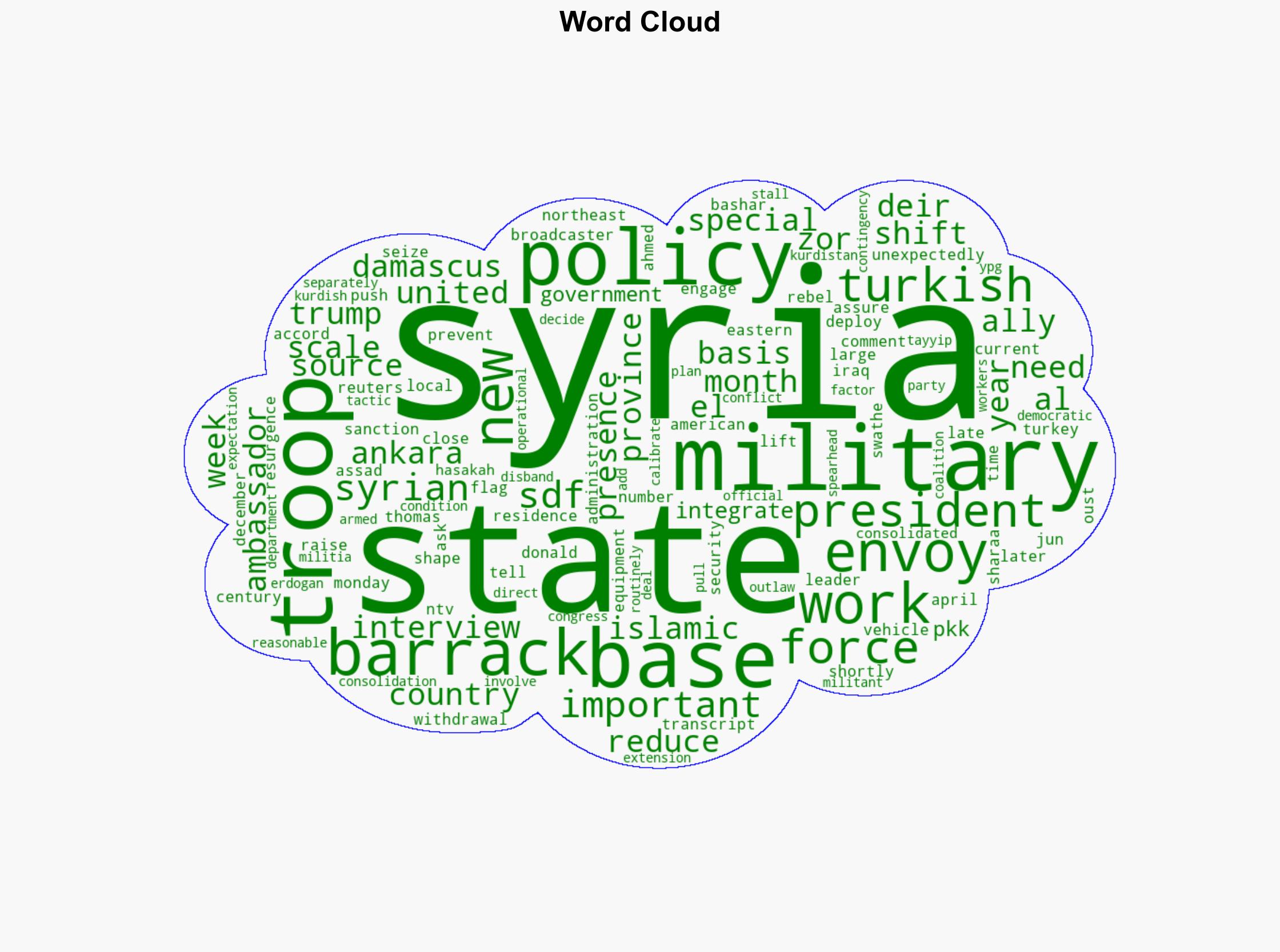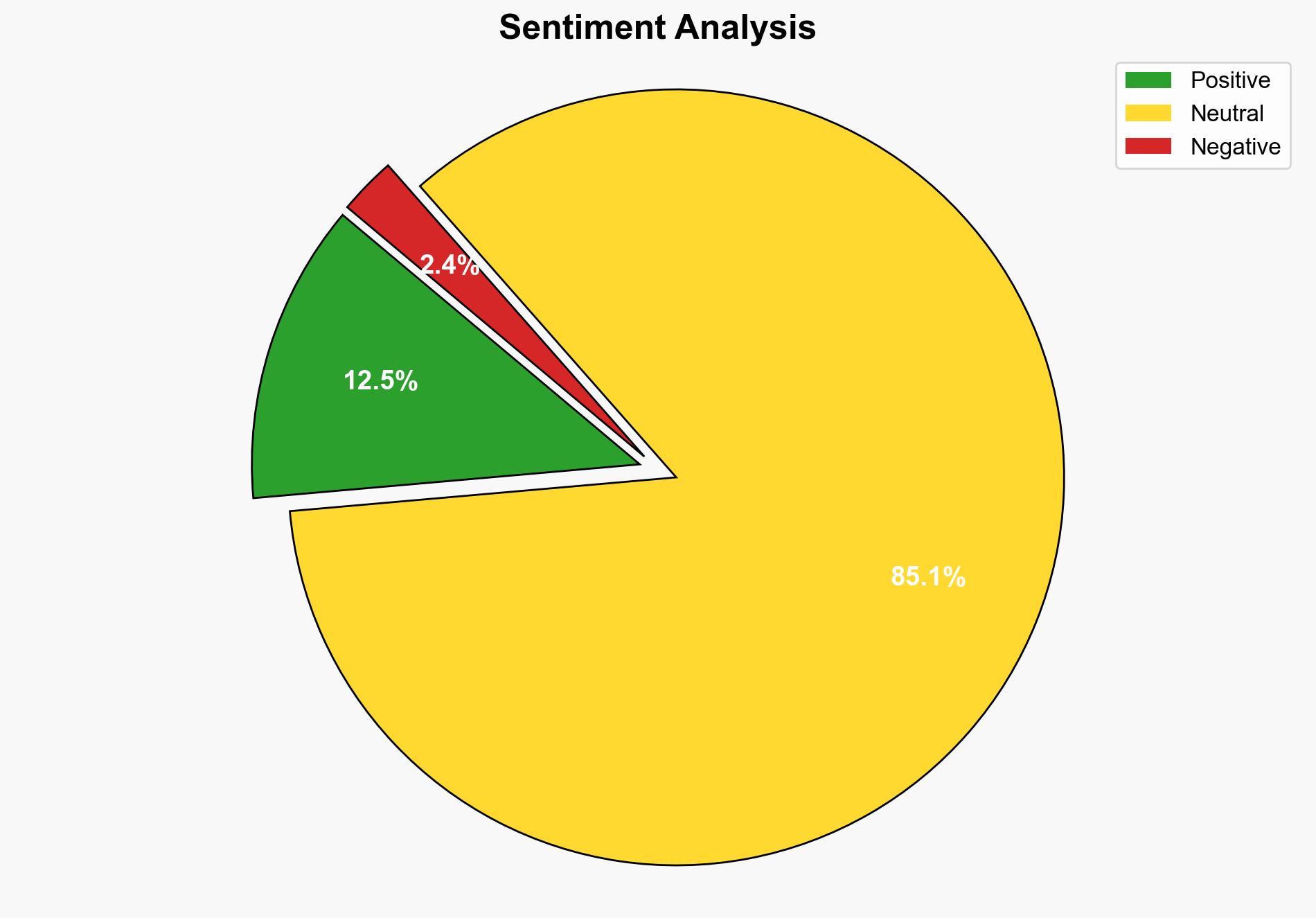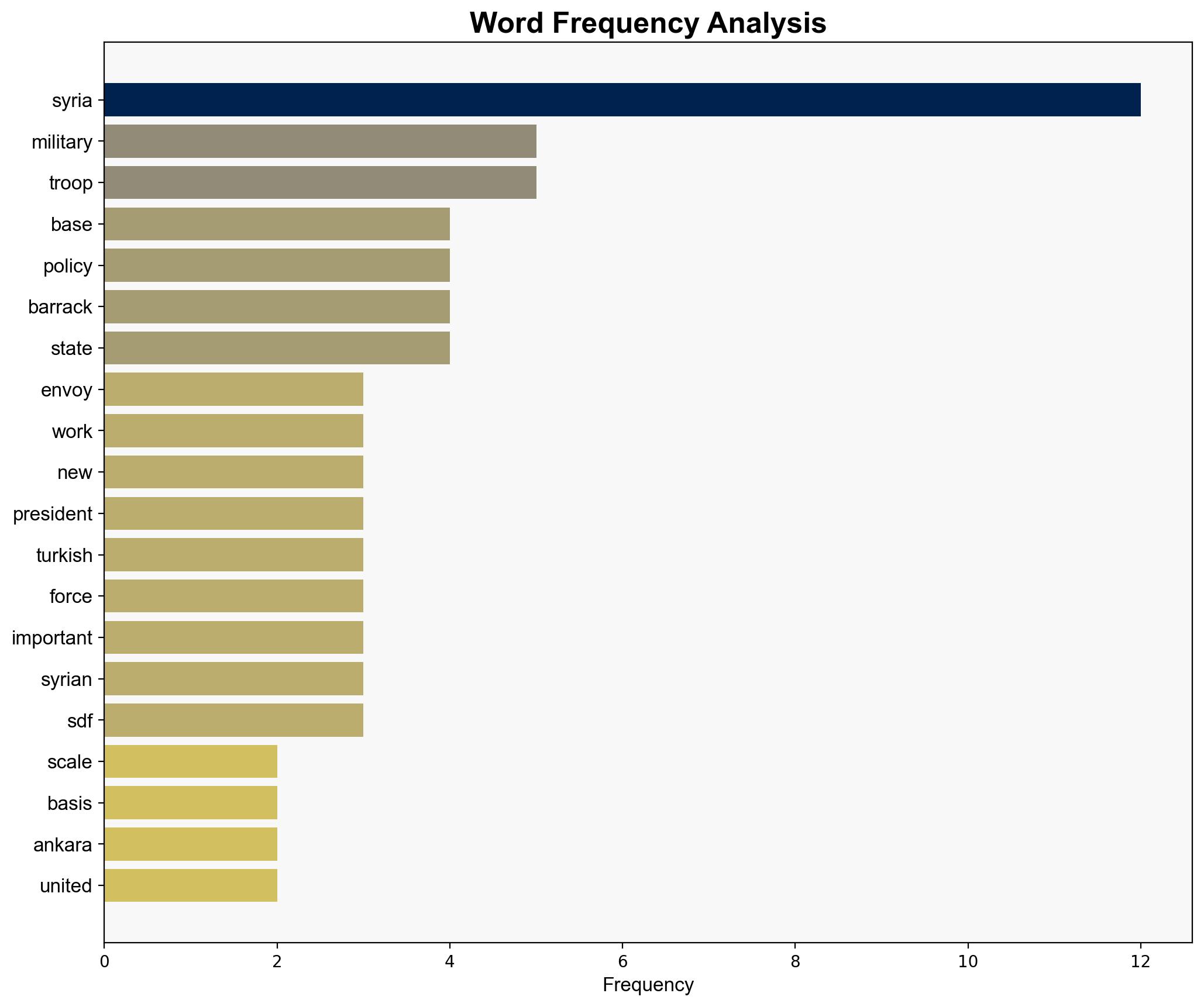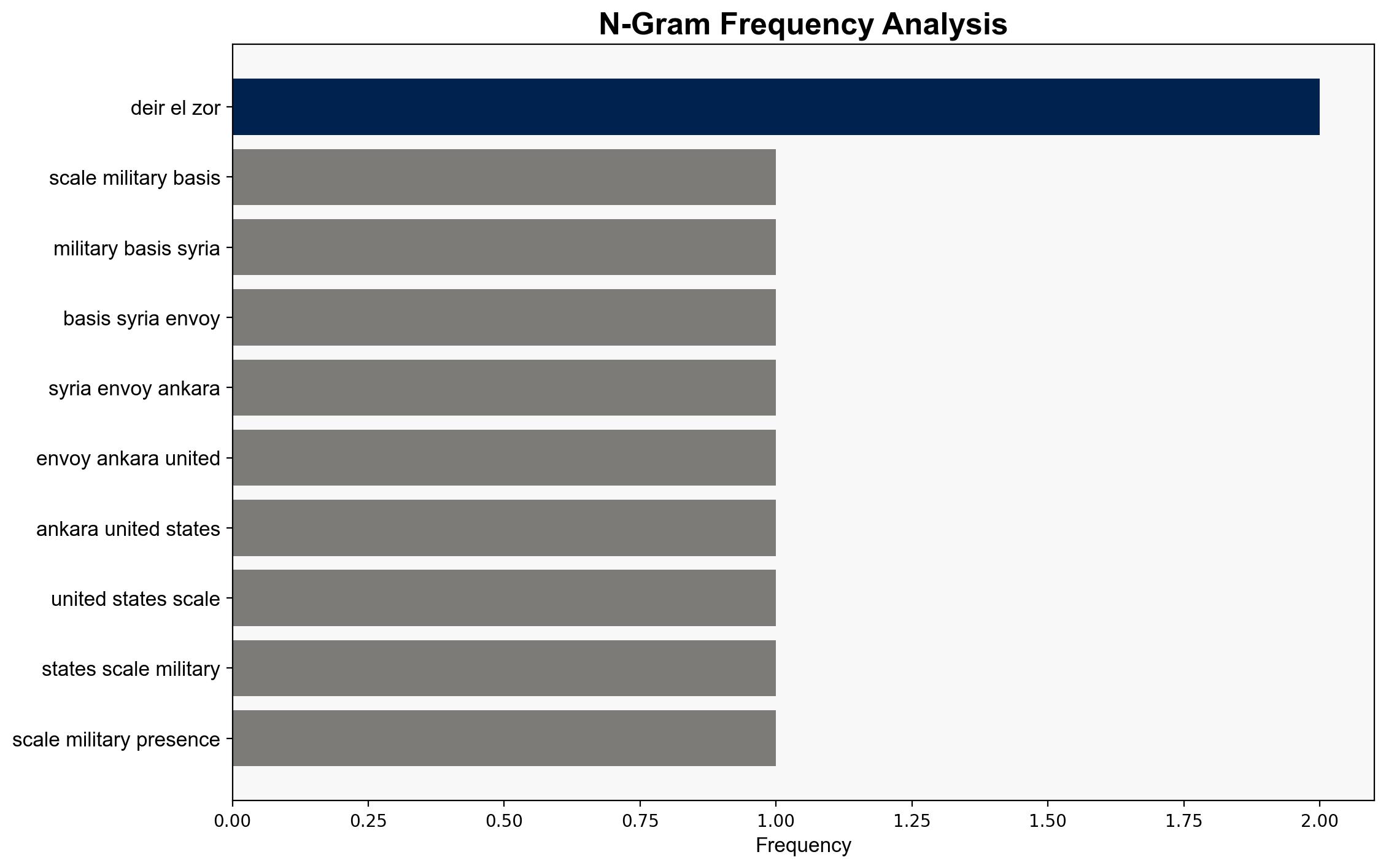US to scale down its military bases in Syria envoy says – CNA
Published on: 2025-06-03
Intelligence Report: US to Scale Down Its Military Bases in Syria
1. BLUF (Bottom Line Up Front)
The United States is planning to reduce its military presence in Syria, a strategic shift that could impact regional stability and the ongoing fight against the Islamic State. This decision aligns with broader policy adjustments and involves consolidating military assets in the region. Key recommendations include monitoring regional reactions, particularly from Turkey and local Syrian forces, and preparing for potential security vacuums.
2. Detailed Analysis
The following structured analytic techniques have been applied to ensure methodological consistency:
Causal Layered Analysis (CLA)
Surface Events: The US plans to scale down its military bases in Syria, as stated by envoy Thomas Barrack.
Systemic Structures: The consolidation of military assets is part of a broader policy shift, potentially affecting alliances and power dynamics in the region.
Worldviews: The US is recalibrating its military strategy in the Middle East, focusing on reducing direct involvement while supporting local forces.
Myths: The belief in the necessity of a strong US military presence to maintain regional stability is being re-evaluated.
Cross-Impact Simulation
Reducing US military bases may lead to increased influence for regional actors like Turkey and Russia. The shift could also embolden the Syrian government and affect the balance of power with Kurdish forces.
Scenario Generation
Scenario 1: Successful consolidation leads to a stable transition with enhanced local force capabilities.
Scenario 2: A security vacuum emerges, allowing for a resurgence of extremist groups.
Scenario 3: Regional powers fill the void, altering alliances and increasing tensions.
3. Implications and Strategic Risks
The reduction of US military bases in Syria presents several risks, including the potential resurgence of the Islamic State and increased influence of adversarial regional powers. The shift could also strain US relations with Kurdish allies and complicate counter-terrorism efforts.
4. Recommendations and Outlook
- Enhance intelligence-sharing with local forces to mitigate security risks.
- Engage diplomatically with Turkey and other regional stakeholders to manage potential tensions.
- Monitor the situation closely to adapt strategies in response to emerging threats.
- Best Case: A smooth transition with strengthened local forces and maintained regional stability.
- Worst Case: A security vacuum leading to increased violence and instability.
- Most Likely: Gradual adjustment with intermittent challenges requiring strategic recalibration.
5. Key Individuals and Entities
Thomas Barrack, Ahmed al-Sharaa, Tayip Erdogan
6. Thematic Tags
national security threats, regional stability, military strategy, counter-terrorism




